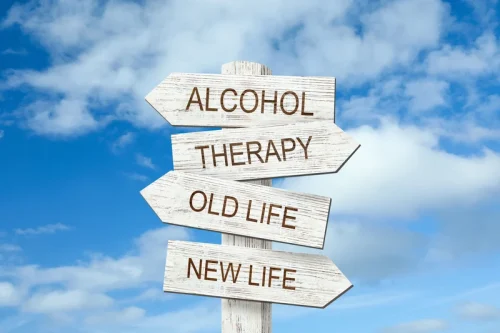Blood thinners and alcohol: Safety, effects, and more

HDL is considered “good” cholesterol while LDL is classified as “bad” cholesterol, a buildup of which can be a contributing factor in a heart attack. So, in a sense, alcohol can help to create a healthy balance of good cholesterol what is alcoholism versus bad cholesterol, further lowering the odds for a heart attack or stroke. Blood thinners may interact with alcohol as well as certain other medications, foods, and dietary supplements.
- While alcohol itself is not a blood thinner, its influence on these blood components can have implications for individuals who require anticoagulant therapy or have existing bleeding disorders.
- Some people take medications to prevent the blood from clotting or slow the clotting process.
- Internal bleeding is the most dangerous because it is more difficult to detect.
- For example, people with liver problems may need to limit their alcohol use more strictly.
- So, could someone like Kendra just use alcohol to thin their blood, instead of taking prescribed blood thinners?
Get Help at Northern Illinois Recovery
Never attempt self-medication or else you may unknowingly worsen your condition. Prolonged consumption of warfarin can cause internal bleeding, so you need to take regular blood tests and pay special attention when taking the medicine. Drinking alcohol and blood thinners at the same time can be a dangerous combination. However, there are a few ways to get around this problem if you wish to consume alcohol but are taking a blood thinner.
Bedrock Recovery
They can provide specific guidance based on your individual circumstances and medications. Antiplatelets, for https://ecosoberhouse.com/ example, prevent platelets from sticking together to form clots. Several studies have been published that link heart health with red wine, as Mayo Clinic reports that a daily glass of red wine may have certain health benefits.

About Medical News Today
However, even moderate drinking can cause temporary increases in blood pressure readings. To lower blood pressure, consider reducing sodium intake, increasing physical activity, losing weight, managing stress, and quitting smoking. These is alchohol a blood thinner lifestyle changes can significantly improve your blood pressure levels and overall heart health. Not only does alcohol thin your blood, there are medications you can take to avoid clotting and prevent heart attack.

Can alcohol cause blood clots?
This is because alcohol causes your blood vessels to constrict, increasing resistance to blood flow and raising blood pressure. As you age, these disruptions may affect your body more, leaving you tired and groggy the next day. Over time, poor sleep can have a greater effect on your mental and physical health, so it’s important to consider how alcohol might be impacting your sleep. So, could someone like Kendra just use alcohol to thin their blood, instead of taking prescribed blood thinners? When platelet levels fall below 150,000 per mL of blood, someone like Kendra is considered to have thin blood. They may have problems with a lack of blood clotting, easy bruising, and slow wound-healing.

Can drinking red wine help prevent heart disease?
- There’s more than one kind of blood thinner, and they work in different pathways within the body.
- Alcohol, on the other hand, can further impair the body’s ability to form blood clots.
- Over time, this can lead to damage to the vascular system and increase the strain on your heart.
- The effects of alcohol in the reduction of blood clotting were more pronounced in the female participants of the study than their male counterparts.
- While some alcohol use may be permissible in certain situations, you should consult with a doctor or pharmacist about your specific situation.
- When alcohol is present in the body, the enzymes may prioritize metabolizing alcohol over the blood thinner, leading to reduced medication effectiveness.
For patients with cardiac problems in particular, it is important not to depend entirely on the consumption of alcohol for treatment of clot formation. At best, the effect of alcohol can last long enough if it is consumed in moderation and on every alternate day. If you drink to excess on a regular basis, you run the risk of excessive bleeding or even a bleeding stroke, even if you stop taking your blood thinners for a time. Additionally, some medications, such as Coumadin (warfarin), interacts badly with alcohol. Moderate drinking is one drink daily for women and two drinks daily for men.

+ There are no comments
Add yours